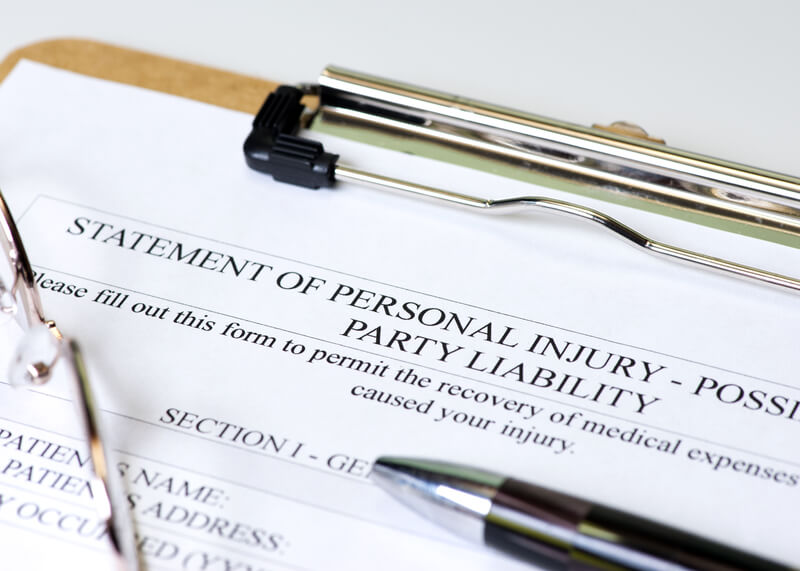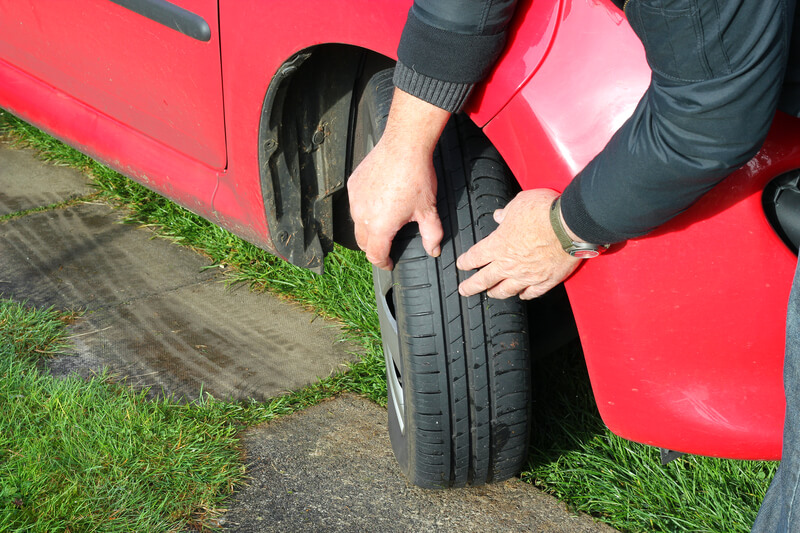It’s officially winter, which means it’s time to prep your car for a change in the weather and driving conditions. While Atlanta doesn’t face months on end of icy roads and snowy streets, freezing temperatures can cause snarls in the city’s traffic, plus put unaware drivers at risk.
Here are the basics you’ll need to prep your car and drive cautiously in dangerous conditions, plus what to do if you’re in a cold-weather accident.
How the city prepares for winter weather conditions
Georgia transplants may sometimes joke at Atlanta’s “shut the city down” mentality toward winter weather, but it’s important to remember the state’s resources when it comes to preventing and treating ice and snow.
The Georgia Department of Transportation (GDOT) maintains roadway sensors around the state to predict conditions, as well as a fleet of multilane tow plows, dump trucks with front-attached plows and pick-up-truck-compatible plows. But even with preparation and a ready response team, the state has to prioritize its actions after snow, freezing rain or an ice storm. GDOT’s first priority is making the roads passable for emergency vehicles. Next is clearing interstates, followed by state routes. Understandably, smaller roads and subdivisions are a lower priority, sometimes only opening up as temperatures rise in the Atlanta area.
That’s why local governments, schools and businesses often make the call urging people to stay home. With fewer folks on the road, GDOT can focus on treatment, and emergency responders can get to those who need help. Here are some strategies to avoid major winter weather events:
- Telework if possible
- Leave later in the morning as temperatures rise, or, if the weather is expected in the evening, get home early
- If you’re already snowed in, don’t risk driving for short, non-emergency errands. With Atlanta’s fluctuating temperatures, chances are the cold won’t last long.
- If you’re an essential worker, like a healthcare professional, find out if your workplace will make safe accommodations for you on-site so you don’t miss your shift or risk dangerous driving.
- If you must be on the roads, stay vigilant. Stay off of your phone and keep your eyes on the road. Non-hands free cell phone usage is illegal in Fulton county and the state of Georgia.
Tips for Winter Driving
Sometimes waiting out severe weather is the best bet, but while a major snow or ice storm happens only rarely, icy roads are a winter staple—one every metro-Atlanta-driver should be prepared for.
As a safe and responsible motorist, there are some driving guidelines you should follow, no matter what the weather. Be sure to always wear your seatbelt, take your vehicle in for regular maintenance checks and follow the rules of the road. Never drive while you are distracted or impaired.
During the winter months, however, drivers should also:
- Be aware of possible icy patches on bridges and shaded areas. Black ice forms when there’s any precipitation or moisture on the ground, and it’s often so thin as to be invisible. GDOT recommends traveling at half the speed limit in a low gear in dangerous and icy conditions.
- Watch for animals. With earlier nights, it’s more likely you’ll encounter animals in their most active window—at dusk and just after darkness.
- Remember to stay alert and maintain a safe distance from other drivers. If you can’t see, pull off the road until conditions improve.
- Be careful of downed trees and power lines after any winter precipitation. Atlanta’s beautiful tree canopy can also take a hit during cold weather—especially in ice storms.
- And, of course, if you do encounter a rare Atlanta snowplow, don’t follow closely behind it and pass with caution.
If you’re driving with young kids, be sure their winter gear doesn’t affect car seat safety. Puffer coats or thick jackets can lead to a loose-fitting harness. Dress your child in lighter layers and bundle them in blankets to stay warm in the car.
While it can be nice to warm up a vehicle a bit before loading the family inside, make sure you don’t run your car in a closed garage. Doing so poses a carbon monoxide risk.
Do you need to winterize your car in Atlanta?
Before heading out this winter, you’ll want to make sure that your vehicle is in good shape. That starts with the vehicle’s exterior. Check the car tires to make sure that the tread is intact. Worn or bare spots on the wheels mean you’ll have poor traction on the already slippery roads. Your tires may also become underinflated as the temperatures drops. Keep them filled to the pressure recommended by your car’s manufacturer (you’ll find this in the owner’s manual or the driver’s side door frame.)
In addition to checking the tires, also clear any frost or ice from the roof, hood, trunk and headlights. You want to make sure that you’ll be able to see properly, and that there will not be any pieces of ice slipping down your windshield or onto another vehicle.
Once you’ve finished inspecting the outside of your car, it’s time to examine the engine compartment. Double-check your battery and ignition system to make sure your vehicle starts up appropriately. Batteries can be temperamental in extreme weather, and you don’t want to get stuck outside when it’s cold and snowy. While you’re checking the engine, now is a good time to look at the levels of your oil, coolant and anti-freeze; make sure everything is topped off and that the hoses aren’t split or leaking. You might also consider switching to winter-grade fluids for your engine.
Try to keep your gas tank close to full for much of the winter. It will help you avoid a frozen gas line, plus offer an insurance policy if you find yourself stuck in winter conditions or you’re surprised by a citywide rush to the pump after a frigid forecast.
How to build a winter weather kit
Atlanta weather is unpredictable, so it’s good to be prepared for any winter driving conditions. If you find yourself stranded in cold conditions, or if you’re involved in a crash, you’ll be safer and more comfortable if you’re well prepared. Grab a duffle bag and assemble the following:
- Blankets
- Gloves
- An ice scraper
- A flashlight
- Flares
- Jumper cables or a portable jump starter
- Reflective safety gear if you need to exit your car
- An external charger for your phone
- First-aid supplies
- Cat litter for traction
- Water and non-perishable snacks
After the infamous 2014 Snowpocalypse, many Atlanta drivers found themselves stuck in their cars without food or water for hours. Some even had to trek through the cold in office-only shoes, seeking shelter after running out of gas. Taking a few minutes to stock your trunk with essentials could prove a major help if you find yourself stuck or are involved in a cold-weather accident.
Once you’ve stocked your kit, check it a couple times a year (it’s easy to do this seasonally, as you switch out winter and summer needs). Replace what’s expired and make sure your battery-powered items still work.
Keep a written list of emergency contact numbers as well, plus your insurance company’s number and your preferred towing company.
What to do if you’re in a cold-weather accident
After any car accident, your priority should be your safety and the safety of others. Poor visibility and slippery roads are factors in many winter weather crashes, so it’s important to move your car to the side of the road if it’s drivable to avoid secondary collisions. Remember to turn on your hazards and make your vehicle as visible as possible. Don’t stand between your car and other vehicles involved or between your car and emergency response vehicles.
After calling 911 and accepting medical attention if you need it, your next step is to exchange information with the other driver, gather witness contact information and photograph the scene, including any wintery conditions that led to the crash. Remember, though, that while photographs and additional information can be helpful in your personal injury case, you should never put yourself in danger to collect them.
If you’re in a winter storm and you get stuck in a remote area, stay in your car while you wait for help. Weather.gov recommends running your vehicle for 10 minutes every hour to keep it warm, while also cracking the window a bit for fresh air and to avoid carbon monoxide risks. Turn on your dome light and tie something to your antenna to draw attention to your vehicle.
Atlanta weather is unpredictable, but by following the weather reports, avoiding driving in the most extreme conditions and traveling with care, you’ll likely have a safer experience on the roads. Snow days are so rare in the city, it’s often a good idea to simply make the best of it, put away the keys and venture out on foot (or stay in for a cozy day at home if that’s more your speed).
Atlanta Auto Accident Attorneys
While it’s sensible to prepare for Atlanta’s winter weather, accidents do still happen. If you’ve been injured in an auto accident and need help with your personal injury case, please contact the personal injury attorneys at Litner + Deganian for a free consultation at our office.












